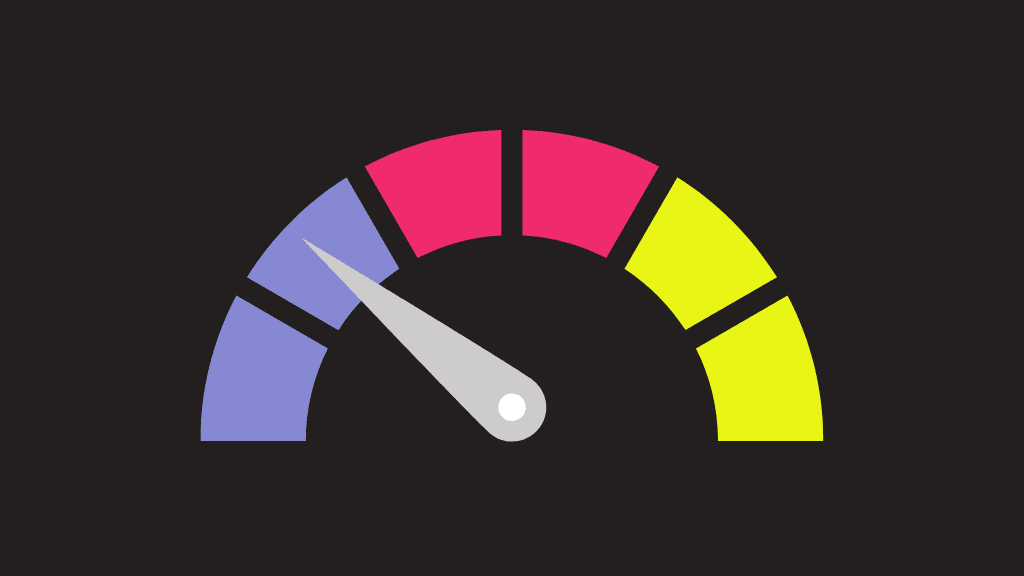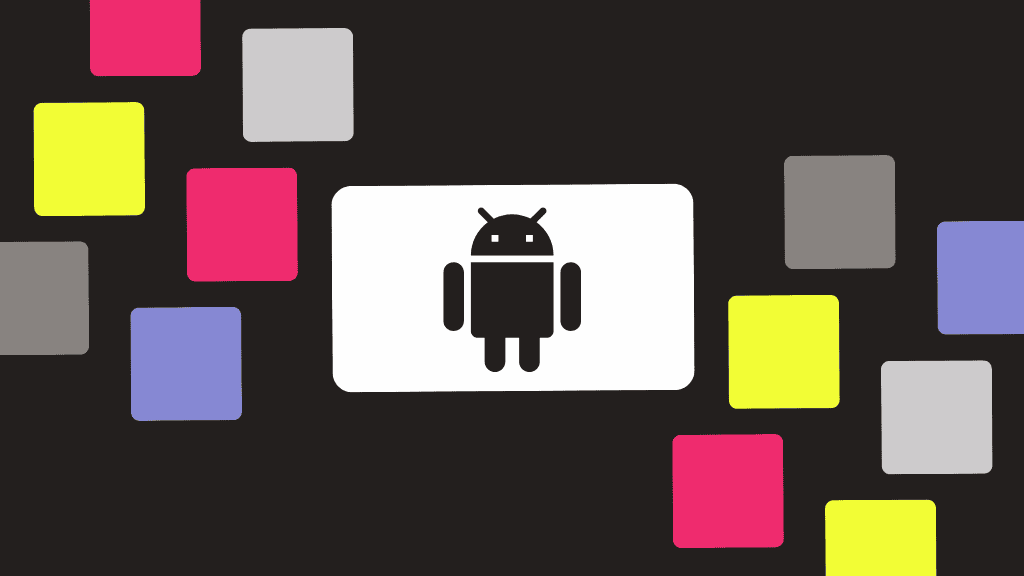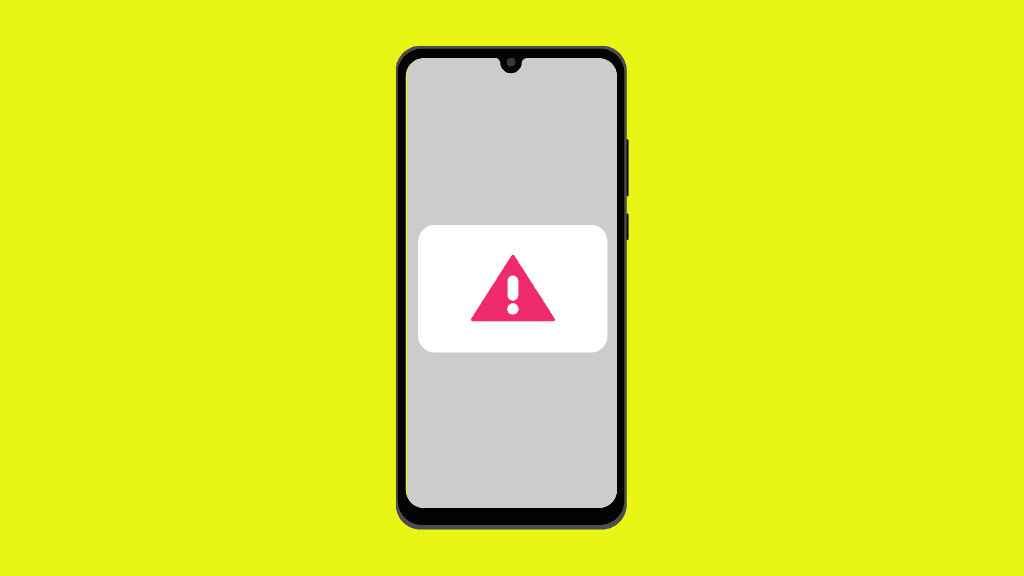
droidcon Berlin 2023 recap

The Embrace team attended droidcon Berlin 2023 to connect with Android engineers from around the world and share how we can help them deliver better mobile experiences. In this post, we’ll cover our experience at the conference, including our key takeaways and our talk that was given by Android Team Lead, Nelson Puglisi.
This year’s droidcon Berlin 2023, the biggest Android developer community event in the world, took place July 5th to July 7th, 2023. The three-day event had over 1,300 Android developers and hosted over 100 tech talks on 5 tracks. This droidcon had a massive crowd compared to smaller droidcons our team has attended in Paris and San Francisco. This year, the team was eager to speak to engineers, learn from our customers, and attend informative demos.
Embrace takes droidcon
As a proud sponsor of the event, our Embrace team was excited to partake in the festivities. This year, our featured talk from Nelson Puglisi, our Android Team Lead, only mounted the excitement.
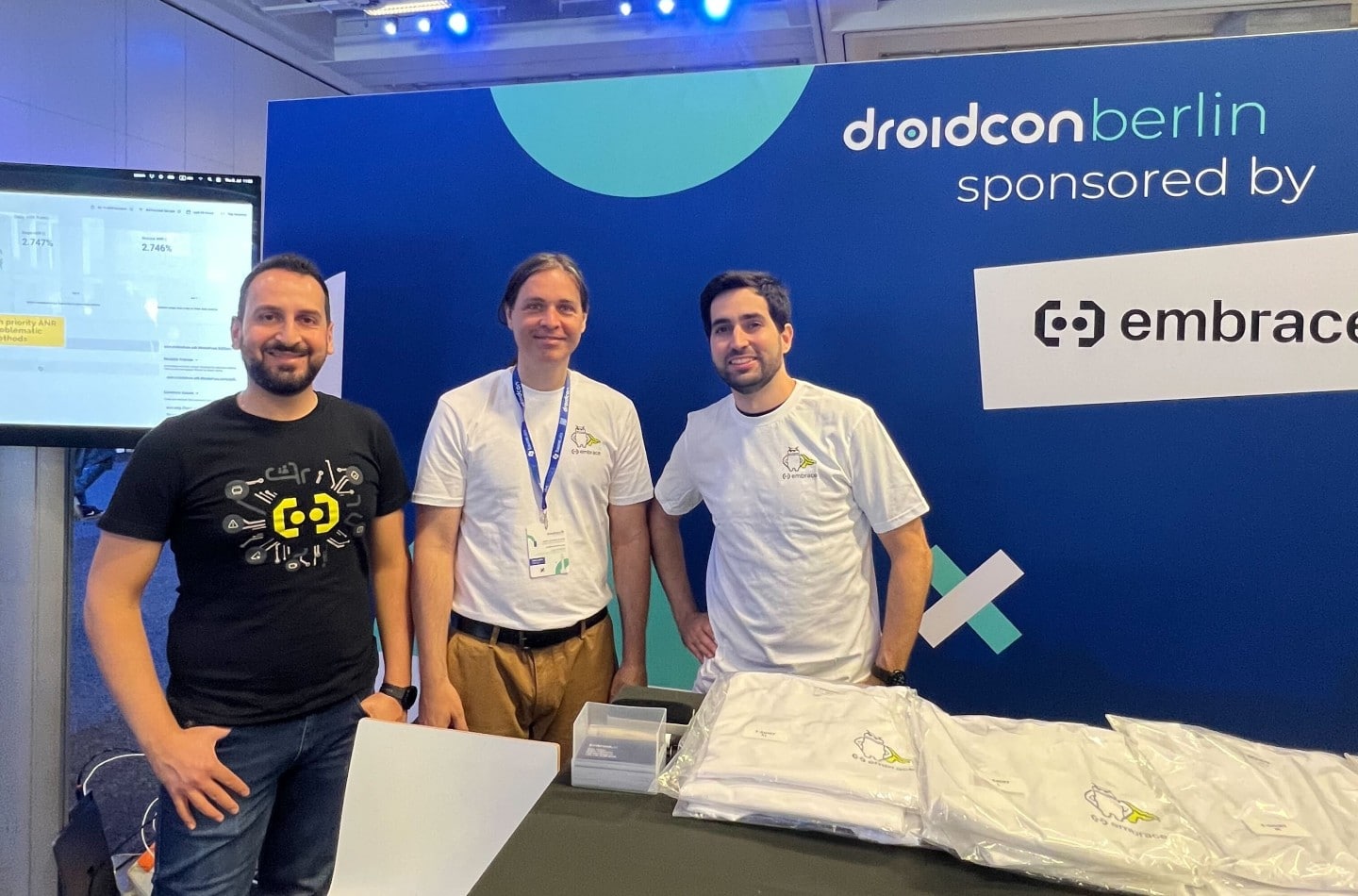
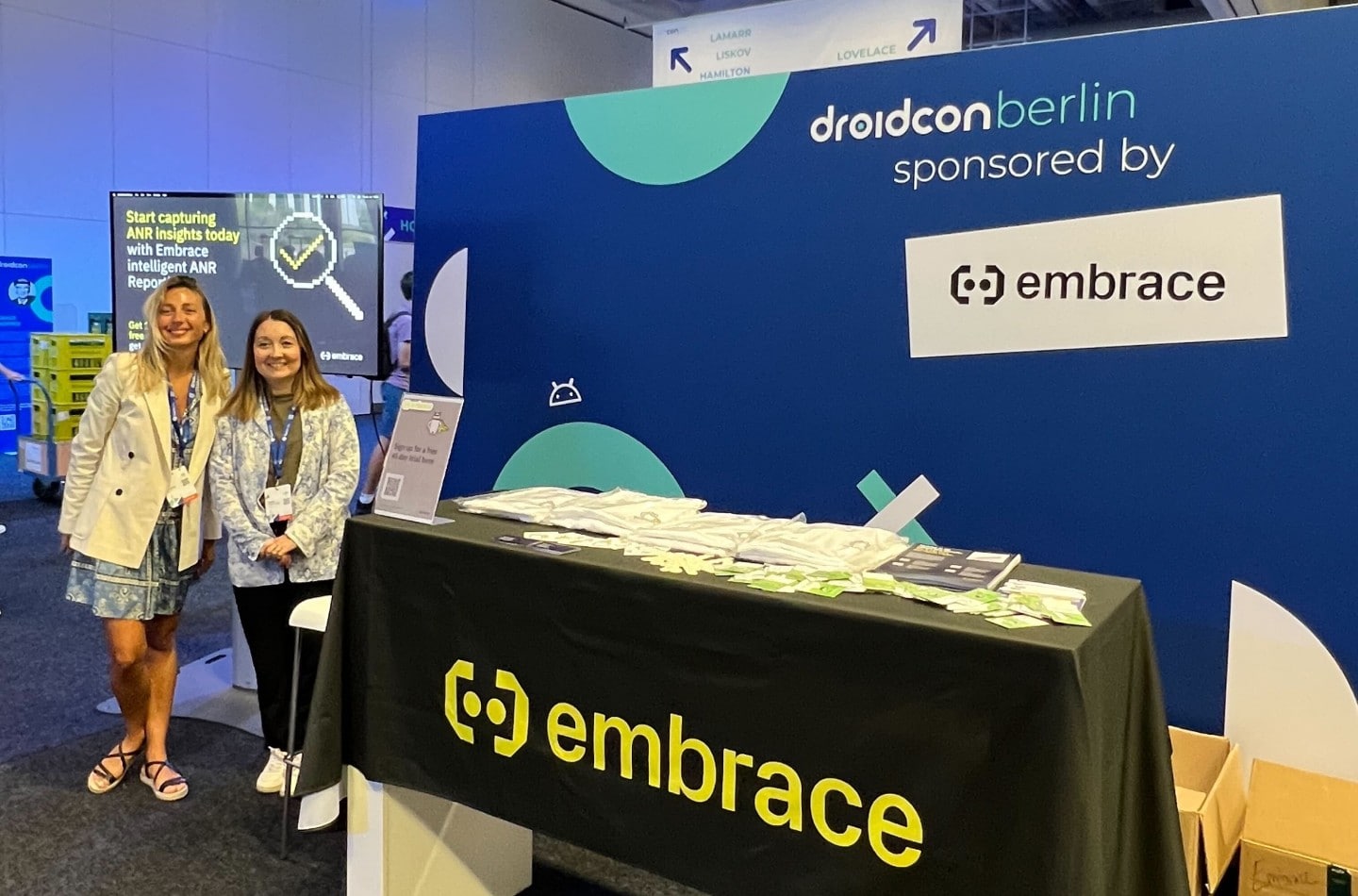
The highlight of the event was our team’s ability to connect with curious Android engineers and Embrace customers. Embrace is a data-driven toolset to help engineers manage the complexity of mobile, and we help Android engineers build top-ranking apps with complete visibility into every user experience. Often, the best way to understand our product is through a hands-on demonstration, and droidcon Berlin was a great opportunity to do just that.
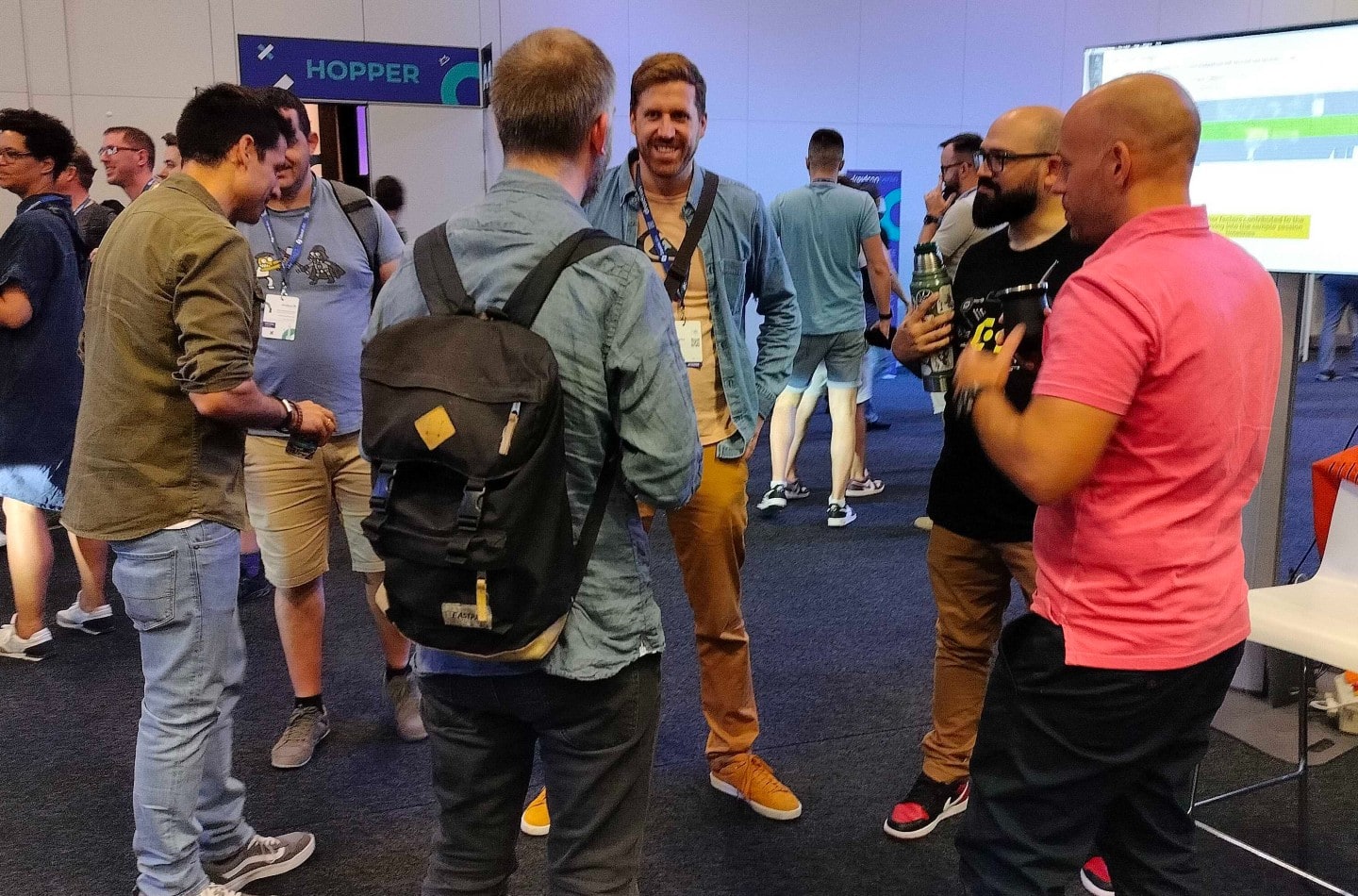
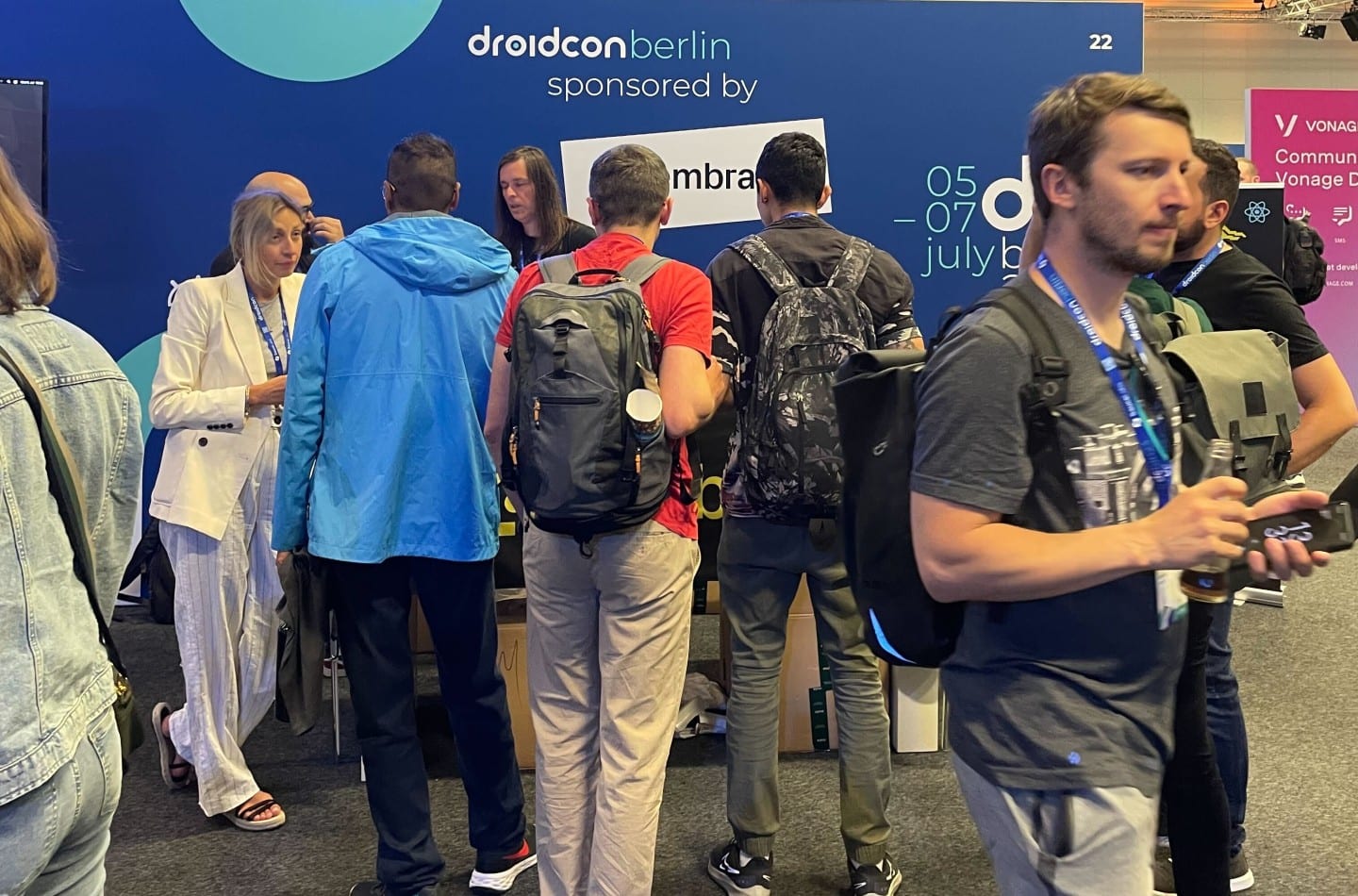
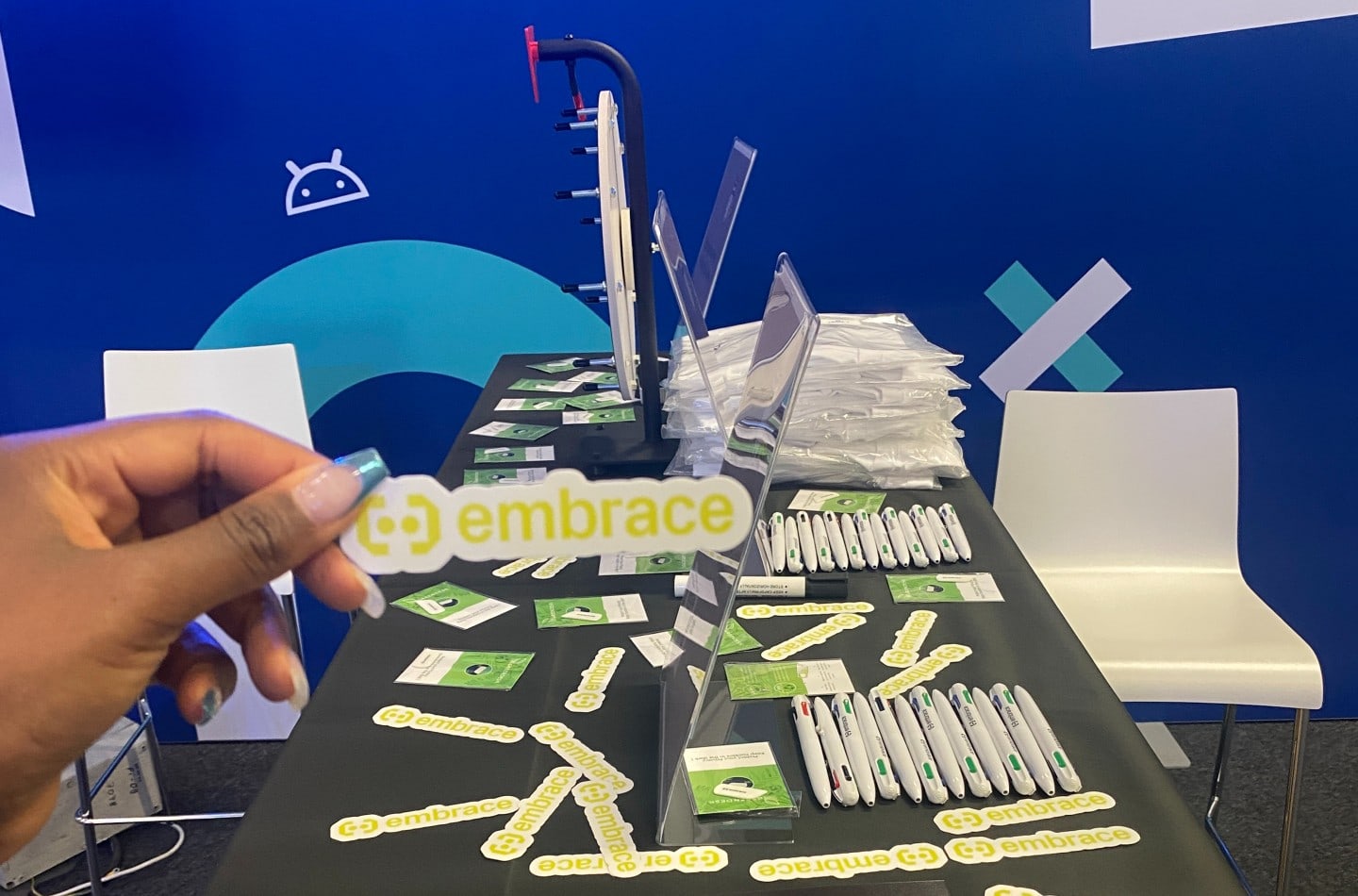
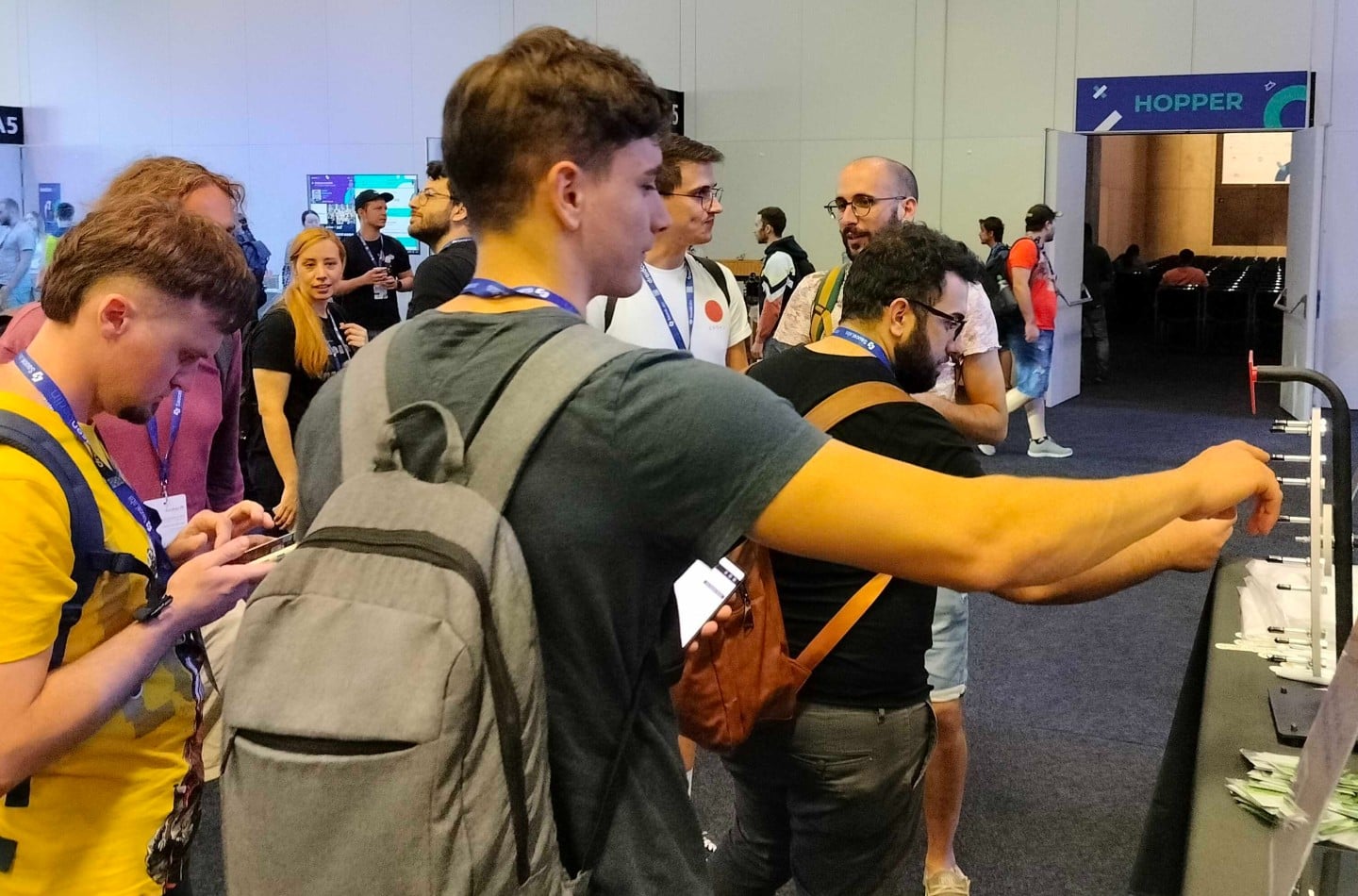
Our booth this year was a hit! It featured several of our expert team members available to chat with any inquisitive engineers, a dynamic screen that showed key features of Embrace (including our ANR Reporting features, detailed User Session Insights, and the data necessary to completely reproduce a session), and an interactive game.
One of the most notable features of our booth was our spinning wheel. Each individual that came to the booth could spin our wheel for the chance to win an Embrace t-shirt, a $100 Amazon gift card, or the opportunity to enter a raffle to win a Nintendo Switch.
Talks we attended
Our team attends events like this not only to talk about Embrace, but also to learn. A few of the talks we attended this year include:
Clean code base: Harnessing the power of Android Lint and custom rules
We attended the “Clean code base: Harnessing the power of Android Lint and custom rules” talk presented by Sinan Kozak of Delivery Hero. The talk focused on Android Lint, a static code analysis tool for Android projects, Sinan’s work at Delivery Hero, and how to write clean and maintainable code as a team and project grow.
The talk started with a discussion about Android Lint. This tool helps identify issues in Android-specific resources like Java and Kotlin files, layouts, manifests, and Gradle scripts. Sinan emphasized the benefits of using Android Lint to catch problems early in development, maintain a clean codebase, and enhance collaboration.
Sinan also touched on creating and testing custom Lint rules using Kotlin, allowing teams to enforce coding standards and improve overall code quality. The ultimate goal of the talk was to inspire the audience to integrate Android Lint into their projects and make use of its capabilities for better code development and collaboration.
This talk piqued our interest because clean code is something we encourage in the development process. In fact, it’s why we automate the vast majority of data collection — so you don’t have to litter your codebase with logs to get the context and visibility to troubleshoot issues.
Creating your first wear OS app using Compose
We also attended the “Creating your first wear OS app using Compose” by Mikhail Kulaha of Google.
The talk covered wearable devices in the Android world, specifically Wear OS, an operating system developed by Google for smartwatches that’s a growing platform with over 100 million active devices in 2022. The talk emphasized the difference between mobile and Wear OS apps. The key difference is that Wear OS apps are tailored for voice and touch input due to the absence of keyboards on smartwatches. Additionally, the user interface for these apps is simplified to accommodate the limited screen space of smartwatches and the limited battery life of these devices.
The similarities between mobile and Wear OS apps lie in their development. They both use an SDK to develop the app. The key difference is that engineers need to consider specific factors like input methods, display limitations, battery optimization, and offline functionality.
This talk was important to our team at Embrace because we’re invested in the way that engineers create their apps and seek to be informed in emerging ways to develop. We’re also invested in providing greater coverage for wearable devices on our platform in the near future.
Kicking back with Compose for Android TV
We made sure to grab a seat at “Kicking back with Compose for Android TV” presented by Joe Birch, a Senior Engineer at Buffer.
In this talk, Joe discussed Jetpack Compose in the context of Android TV, a popular platform with a large user base of over 150 million monthly active devices. The talk highlighted the key differences between TV apps and mobile apps.
To begin the talk, Joe underscored the importance of understanding how users interact with the app using a remote control. Remote control usage is why it’s important to design the app’s user interface to be easily navigable with a remote control to create a smooth user experience.
In TV UX, the concept of focus plays a significant role. When an item is in focus, it is highlighted to indicate it as the current selection, helping users understand their position in the UI and what actions they can take next.
An important point of the talk was Joe’s discussion of Jetpack Compose’s offering of new APIs that facilitate the implementation of focus in TV apps. These APIs help engineers emphasize the currently selected item, making it even more visible and intuitive for users.
This talk was highly valuable to our Embrace team because of its exploration of TV app development. We’re working to provide greater insight to potential clients that specialize in TV apps and streaming.
Adopting Jetpack Compose safely
The last talk we attended was “Adopting Jetpack Compose safely.” This one was presented by István Juhos and Marco Gomerio, two Senior Android Engineers at TIER.
During this talk, the speakers shared their experiences of migrating to Jetpack Compose with a large project. They started the talk by highlighting the initial challenges they encountered working with Compose, specifically related to the usage of bindable properties, RX relays, and RX code in the view model.
The team outlined the steps they took to navigate these challenges. They discussed the importance of refactoring the view model and transitioning to Kotlin flows, which helped simplify the code and make it more compatible with Compose. In addition to this, they explained how using the Compose state API improves the management of UI state, resulting in code that is more concise and maintainable.
This talk was valuable to the Embrace team because it provided valuable insight into the journey of migrating to Jetpack Compose.
A talk from our experienced Android Team Lead
This year, Nelson Puglisi, our esteemed Android Team Lead, gave an amazing talk titled “How to Successfully Shift from App Development to SDK Development.”
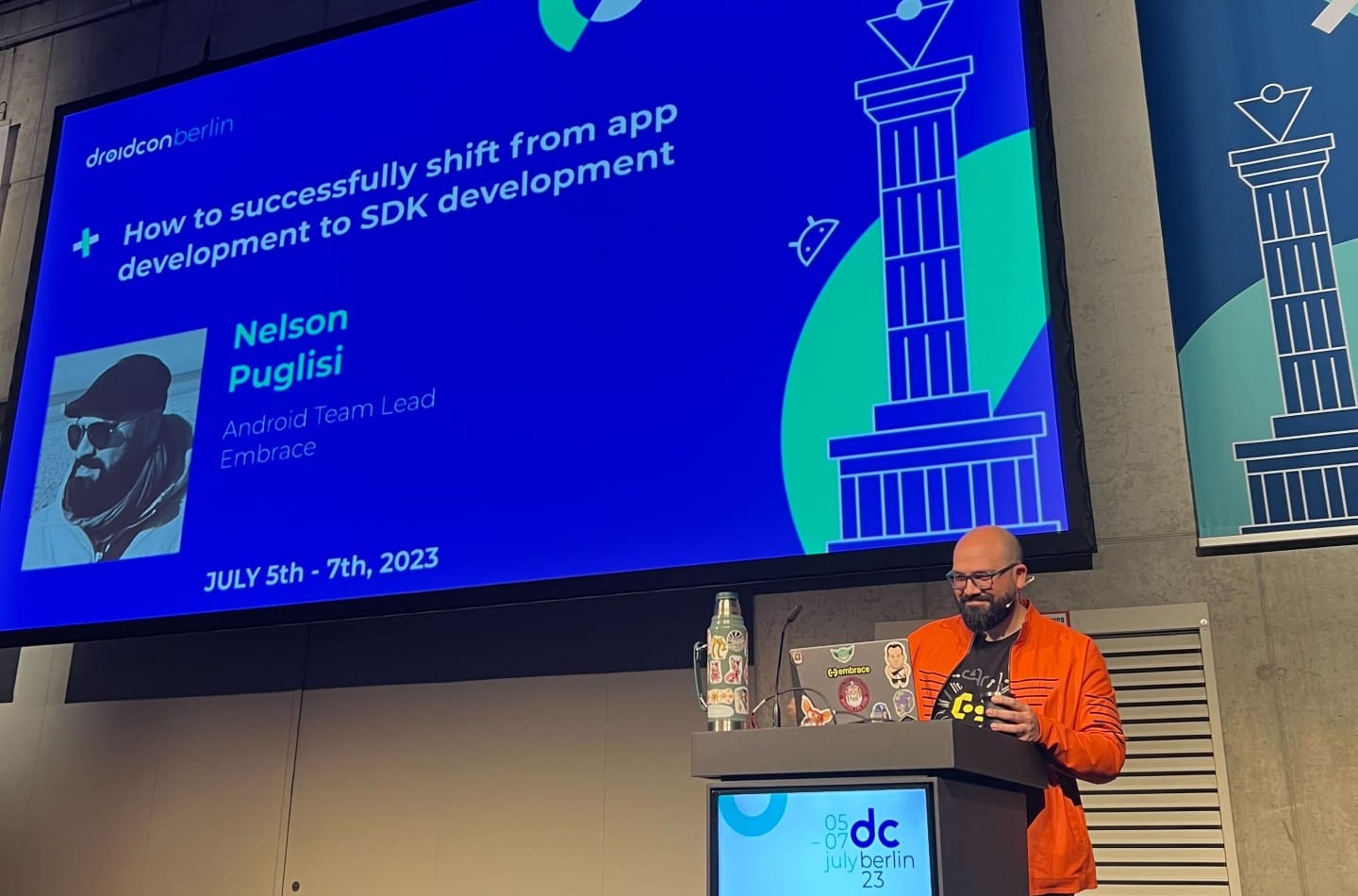
In his talk, Nelson covered the key differences to consider when building SDKs as opposed to apps. In today’s mobile world, it’s not enough to build an SDK that merely works. It’s essential to develop an SDK that is performant, lightweight, and ensures a positive user experience by avoiding freezes or crashes. To achieve this, Nelson discussed three key components of SDK development: measuring SDK performance, making SDKs developer-friendly, and coding defensively to protect the SDK.
You can watch the full presentation below.
Nelson’s talk was a hit with the attendees at droidcon. In fact, we had a person run out of the hall where Nelson presented his talk to sign up for a demo with our team immediately afterward. This is the type of passion we have for the mobile space and the type of zeal we love to see from our peers!
Lessons from droidcon Berlin 2023
It was amazing to connect in person with Embrace users and Android engineers. Across the board, our team members found this face to face time to be invaluable.
Additionally, the insights gained from current users were amazing. We’re excited to get back to developing great features that make building great mobile experiences as seamless as possible.
We can’t wait to see you again next year!

